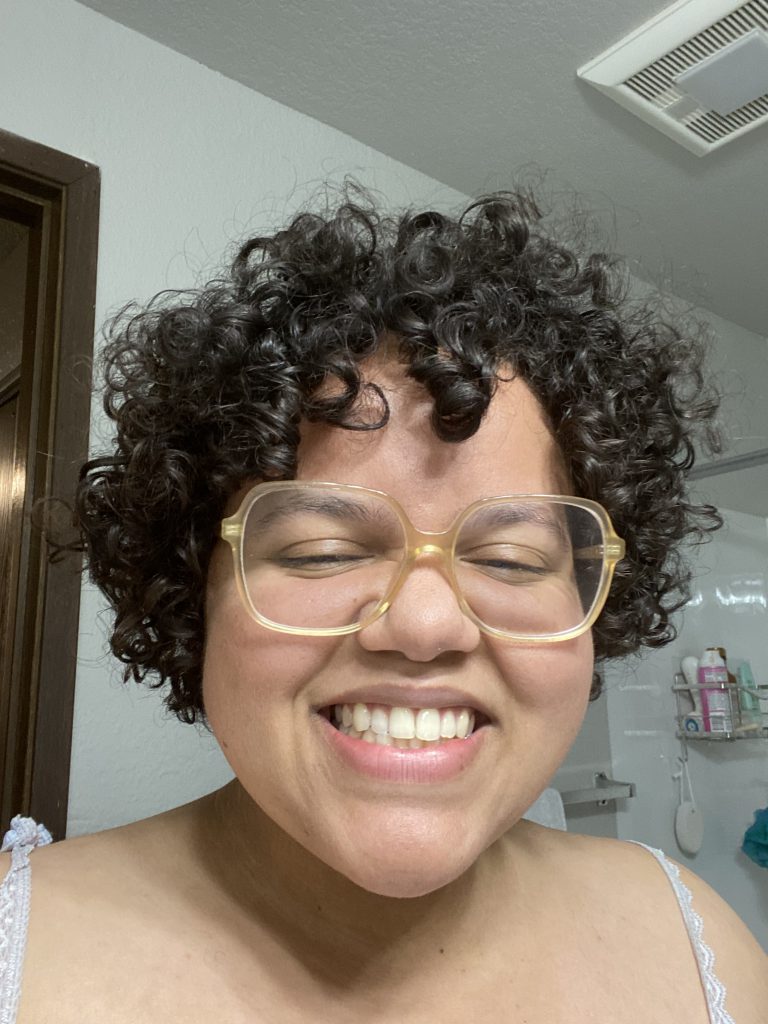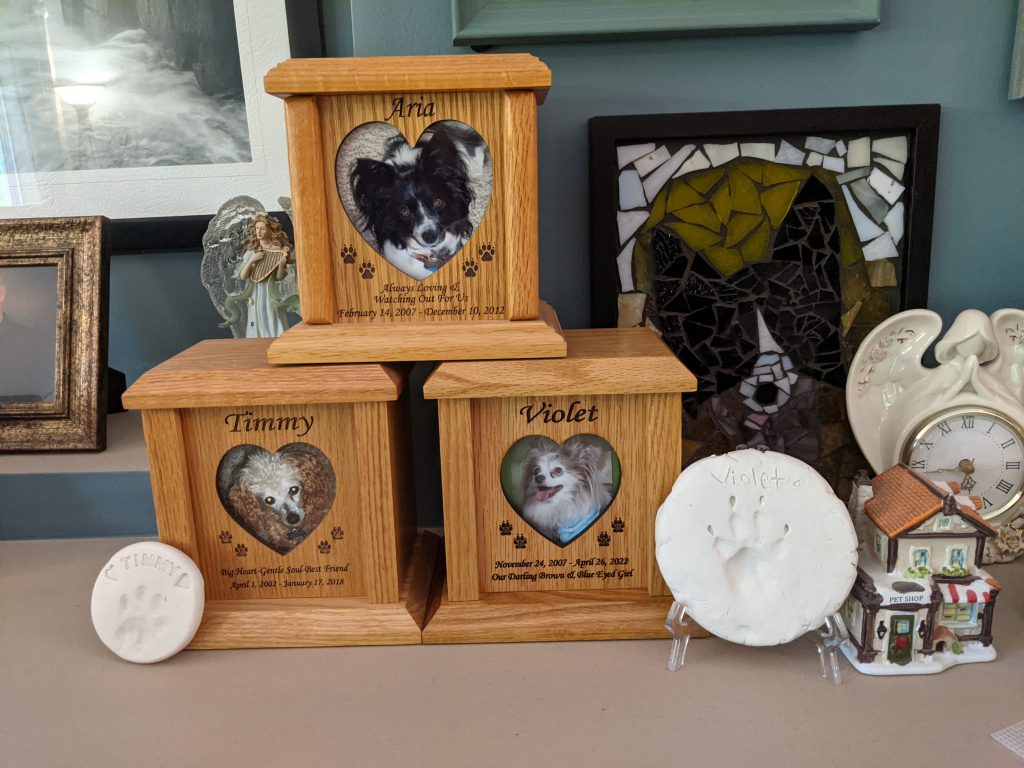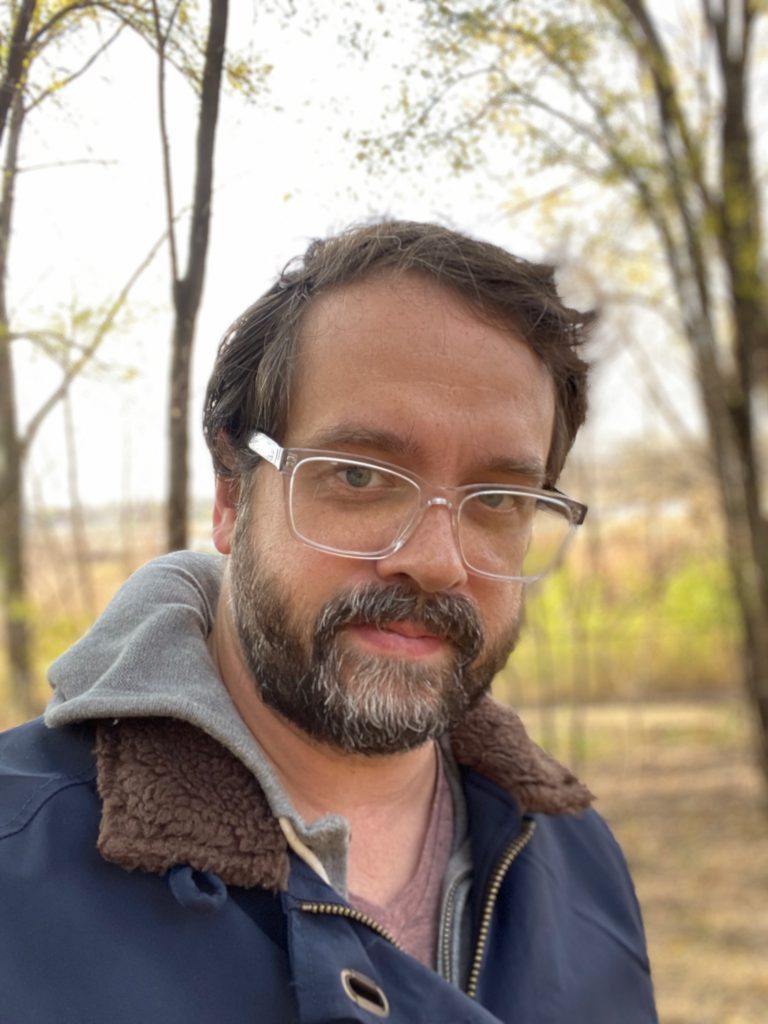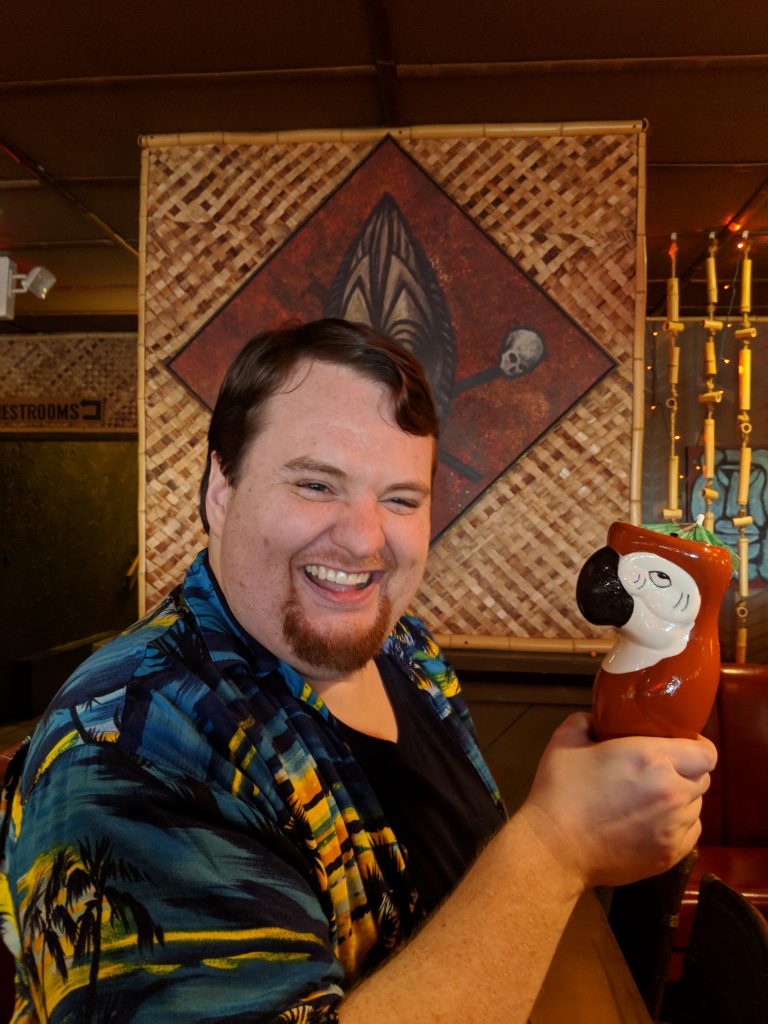edited by David Steffen
Mortals slice us dryads open to count the layers of our lives; it is easier than listening to our stories. They slide their fingers over our rings, thinking that our texture, our shifts in coloration would bring them understanding of their own lives. In their minds, we exist to bring poetry to their sighs and serve as metaphors for longevity.
I ignored that wisdom, that tingling fear in my roots, for the first six years that the carpenter and his family lived beneath my boughs. I watched as his daughter sprouted into childhood. I celebrated when his wife was pregnant once again. They spent their days tasting the honeyed air from beneath my gray canopy and sighing their contentment. Through all these years, I whispered my stories to them and believed they loved me.
Even though I told them my tales, they apparently heard nothing but nature’s silence. How do I know? Four seasons ago as I was luxuriating in the mingling pollens of the spring, he built his workshop.
***
Though my roots have sunk into this shallow soil, I stretch back centuries. I once lived, gray-green and shining, beneath a Mediterranean sun. Athena brushed her love onto me, fingertips to my cheek. Her gray gaze met mine—her lips met mine. I wept to be so anointed. She left, of course; leave she must, and my love was bounded and strengthened by that “must.” I, merely somewhat immortal, did what I must and became something other for her sake. My olive once-skin pressed upon olive bark, and together the tree-and-me became merely me.
I rose with the years. I gifted mortals my seeds, my art. They pressed the olives that I bore and wore the oils as a badge of honor. But, for all the olives that they took, many more spread beneath me and bore me wild-running-growing children. Hardy and burled and lovely-to-me, they raced along the wilderness like the wine-god’s lovers.
Though mortals used my flesh, my fruit, the experiences stored within me, I was beloved. Veneration fed me. My gifts were truly gifts—given graciously and not stolen.
***
But in this life, I was forced to reckon with tools: his axe, his chainsaw, and the whine of the sander. In the tang of sawdust, I tasted many powdered lives.
The carpenter clipped my limbs yearly. He carved away my wildness. My olives no longer ripened for me but for him. They burst achingly upon his tongue instead of sinking gracefully to the earth where they could grow.
Nonetheless, I watched wistfully as his daughter ran shrieking across the lawn, tossing her sandals in the air. I felt the warmth of his wife’s hand as she placed it against me, bracing herself as her daughter sowed childhood’s chaos in her garden. But their love did not sear, gasp, or command like Athena’s anointment. With Athena’s love (brief, beautiful), I was. With theirs, I was not. I was only an object at the border of their lives.
To them, the crows and sparrows among my limbs meant nothing. The winds that played among my branches? Nothing. The sun motes pressing like gentle lips against my leafy face? Nothing.
***
In the workshop, the plates, platters, and cutting boards caught the dead reflection of sunlight in their polished wood as they sat in its windows. The shavings of sandpaper against grain blew everywhere—the fragrance of life sloughed off.
I watched what he did with his host of iron tools.
By day he carted our carcasses in his coughing truck. He’d pile us, lay us out to dry. He stole our bones to create skeletons for his beds and tables.
At night, he was more intimate. He spent the purpled light of his dusks stroking grains, twisting wood in the waning light, looking for a gleam of beauty that he could capture and remake as his own.
***
I feared that I would end my life as a bowl.
The carpenter spun a tale for his wife, his voice as soft as moonlight on my boughs. In his story, the beautiful old olive tree, foreign to this soil but so entrenched in their lives, would one day be cut down, severed. He would shape it into mementos for their children so that they’d remember the amber-hued afternoons and the taste of honeyed spring.
She protested. Softly. His voice a counterpoint, their conversation now in well-worn harmony. He told her that he knew my fading silver presaged my falling.
One hand on the roundness of her stomach and one hand in his, she acquiesced, and I whimpered.
***
Though dryads can’t sleep, I dreamt nonetheless. Even Athena’s kisses couldn’t shield me. In this dream, the chainsaw started. The buzz. Its engine screamed—and then choked on the gutter-stutter of its mechanical song. I stopped. Shards of me lay around my stump. His chainsaw shredded me into dust. I felt myself in every puff of it. I became powder.
Clenched in the claws of nightmare, I feared that my only chance at life (pale and echoless) would be in being made paper. I knew how humans kept their stories. They masticated our lives in their machine-jaws. All my days collecting sunbeams, exploring the miraculous depths beneath the tips of my roots—
All would be pulp.
My best hope would be to be mashed into paper for someone else’s story.
What agony can surpass the need to scream, only to find your teeth and tongue clattering out another’s words?
***
But dreams are merely dreams. Though snakes burrowed beneath my roots, I was not some python-wearing prophetess. My dreams did not bind me.
One afternoon as the daughter climbed my branches, I pushed against the strength of my trunk, attempting escape. As a young dryad, I would slip from trunk to trunk, taking on the flexibility of the willow or the melancholy of the laurel as it suited me. I would slip from me to different me, delighted at how my soul could remain even as my shape altered.
But then love set its boundaries; I shifted no more and settled into one me. No more lithe play.
Now I hoped that I could exist outside these old boundaries, this aging love. Even if it meant leaving these roots, these gray leaves behind.
I pushed hard. The resistance was as certain as Athena’s lips sealing me into this wood. The insistence of the daughter’s scrambling feet against my bark was nothing compared to that resistance. I couldn’t separate myself from this tree—for it was me.
***
The crickets sang their sad-songs and the frogs bellowed out their summer poems. The carpenter worried as his wife’s pregnancy continued toward its joyful fruition. I knew that I had time before his thoughts turned to preserving memories; he was still creating them.
But, bound as I was, I couldn’t act. I couldn’t craft wooden horses to storm his home (crafting wooden creatures seemed a bit counterproductive, I must admit). I couldn’t reach out a hand to feed Cerberus his favorite cakes to coax him into devouring the carpenter. Without a mortal body, what action could I take?
Perhaps none.
But. Even though the humans would not hear me, I could still communicate. I dove deep into the thrumming of life around me. I listened and planned, awash in its murmurs.
***
“Daddy, look!”
Out of the house the daughter ran, finger trembling with excitement as she pointed at his workshop.
Steaming mugs in hand, both the carpenter and his wife stepped off their porch. The daughter ran to them, laughing, buoyant.
The workshop was bound, completely encased in spiders’ webs. My friends had woven it into obsolescence.
Everything from the roof to the foundation was covered. Even the windows were obscured. The flat light of the late summer’s morning scattered against it. No mere silver glinting of a spider’s web here. There were blues, oceans and midnight reflections. Greens, the screams of peacocks and chlorophyll spilling light and life. Reds, carnelian flame, and autumn’s leaf. A beautiful cacophony.
Arachne always had a talent for colors. Mortals remember too well the lesson of her pride and read her only as a warning, but in so doing they render her flat. I had seen her so once, hating her for her treatment of Athena, but exiles in a new land can’t hold onto old grudges. Her daughters and I had to dig our roots into this soil together lest we erode alone.
“Daddy, your room is a fairy house!” the daughter said, tugging at his sleeve.
“Maybe so, kiddo.”
“I’m gunna look, okay?”
“Okay, but don’t touch it!”
And off she ran.
I watched as she dashed toward the workshop, investigating every nuance of the web. I had expected more fear and less wonder.
“What do you suppose did this? This is too big a job for any spider,” the wife said.
“Well, I don’t know what else it could be. There must be spiders nesting in some tree. A whole crop of ‘em,” he said, after sipping his coffee.
“Well, it’s certainly pretty. I’ve never seen spider webs with colors like that,” she said. ”Maybe it is a fairy house.” She smiled.
“We can leave it for today. But I’m calling the exterminator tomorrow.”
The webs wrapped around my branches trembled as the spiders fled. I, too, contracted and bent inwards, retreating from their conversation. Fear. Beauty. The brazen metaphor that cocooned his workshop. None of these worked.
I retreated into silence again.
***
I enjoyed waxing philosophical, burrowing my way into numinous contradictions. But this paradox, to act without moving, confounded me.
I employed all my tricks. I shifted my roots, sending the snakes (green, brown, yellow) gamboling through the yard. Giggles from the daughter, consternation from the carpenter. I sang my troubles to the trees nearby, and together we blanketed the workshop, his truck, and his screaming saw with our sap. Mild irritation and turpentine put an end to that rebellion.
I wondered. What if I broke loose one of my limbs? What if I sent it through his workshop? His bedroom? Could I still be me if I saved myself through violence?
In the beginning, I hoped to convince him that the life-bearing sap that runs through me pulses like his blood does through him. But he was no Socrates. There was neither wit nor questioning—only relentless motion forward. The only dialogue possible was between me and his tools. I feared that I would soon have more in common with Diogenes and his barrel.
***
I tasted the coming of autumn; the fragrance of death-and-life-commingling, the fruition of ending, fell upon me like the morning dew. I imagined I could taste my own death, and that death tasted largely the same as it ever did.
But there was hope and life, too. Someday soon the carpenter’s wife would be whisked off to the hospital, sure to return a mother of two. The carpenter couldn’t wreak vengeance on me for my rebellions with a new child in the house.
And the daughter was here.
She played among my roots, creating entire mythologies using my discarded twigs and autumn-spent leaves. As quickly as she created them, she destroyed them, in an explosion of creative energy that fed the next story.
She played among the cedar chips that the carpenter shoveled along my base. These cedar chips clogged my phloem and xylem with other memories, crowding me with experiences that were not of myself. I struggled to remember who and where and when I was.
But she incorporated them into one story, creating something larger than me. I was not that brave.
***
The carpenter became restless. His hands, never idle, grew increasingly frenetic as he scraped the paint loose from old furniture. One day, he turned his eyes to me. He paused as he measured my width and the angles at which my branches tend to fall.
The nightmares increased. They clung more soddenly to me, slowing my sap within my trunk. Only one thought brought me comfort.
My lady Athena.
In my desperation, I called out to her. Though she left me on the hillside thousands of years ago, I hoped that she had reserved some of her power to preserve me. She had left me little sign of affection over the years; never once had an owl perched upon my limbs. No aegis sheltered me. But I knew! I knew how she punished mortals who deigned to harm something she held dear.
My limbs shivered in the moonlight, waiting for the darkness to break.
***
They awakened to the dawn and warm-burred trills. Owls perched on the roof of the home. On the lamp posts. On the trees and the swing sets and the fence posts. Hundreds of them. The variety stupefied: owls meant to screech. To burrow. To haunt. And in my branches, a tiny owl with silvered green jewels for eyes.
The carpenter and his family looked from their windows. I saw amazement on their faces—and it darkened to horror. Several of the owls begin circling the house, soundless on their wings. One of them perched on a windowsill, its legs gargantuan and daunting.
Athena admired these birds for their wisdom, but she loved them for their talons, instruments of war.
“Well, my dear. What would you like from me?” asked the tiny owl, its whisper both a whistle and a coo.
I rustled at the question, torn between trembling in love and quailing in fear.
“I have summoned my paragons here—and at some cost. Would you have them bring an eclipse? Their wings could darken the sky. Or I could transform the mortals into owls. A fitting ending, yes? Some modern mythology.”
The owl on the windowsill pecked (perhaps) playfully at the glass, and the carpenter’s wife recoiled.
“Or I could kill them? I have here a thousand talons. They were meant to rake, and their beaks were meant to tear.”
No, I shuddered.
“Well, then, I ask again—what would you like from me? I have come, as summoned. You haven’t spoken a word to me. I can feel your ‘no,’ but you won’t voice it.” Then, more gently. “So, my dear, tell me. What would you like from me?”
I watched the faces of the family inside, their fear growing. “I don’t know. I was scared, and I don’t want to die.”
“Die?” A laugh chilled to breaking. “You are nigh immortal! I don’t think you need to worry about dying. Pain, yes. Boredom. Oh, yes. But ending? That is not what awaits you.”
“But he’s going to carve me! I might not die, but I don’t think that counts as life. I’ve tried what I could try. I’ve spoken, but they’ve not listened. I’ve tried to frighten them, but they felt no fear. They have no heart for poetry or divine signs. I can’t move. I can’t act.”
The owl pecked me. Hard. I couldn’t be certain if she meant to kiss me or split my forehead open. Whatever the case, my words and worries slowed.
“You beautiful fool. You were meant to be worshipped.”
A thought sprung out.
“Make them worship you.”
***
So I grew.
***
I clenched and unclenched my roots, stretching them as far as they could move. With my root tips, I lovingly caressed the roots of my neighbors. I gathered in their joy, their sunlight, and their memories. I consumed the cedar chips, the mulched lives that the carpenter placed around me to sustain me. With them, I grew stronger. Grander.
Taller.
I sent my roots spiraling into the garden, uprooting the carrots, tomatoes, and flowers. I shattered sidewalks and overturned lawns—perhaps dandelions would grow again. The swingset I caught in my branches, bending its rusting metal into a shape of my desire. It too became a part of me, and I grew wider.
The owls launched themselves from their perches as my body creaked with my growth. It was quick; it was violent; it was a magic that was wholly mine. They ceased their vigil of the house and began circling me instead.
As I subsumed these new selves into me, I could almost taste the sea air.
I bent my trunk around his workshop. I listened to the boards splinter and fed them into my center. I heard the forgotten music of planks laid to rest and the plaintive notes of his sculptures. As I incorporated them into myself, I appreciated his artistry for the first time. But no mortal hand would carve me. I was my own carpenter.
I sculpted myself into my own cathedral.
I sang my own hymns. My resin became my incense. I vowed that every morning I would anoint myself anew, for I was holy. I broke through the boundaries that had kept me silent, and I chanted myself into a new divinity.
***
Those who worshiped in me trailed their fingers against the delicate wood grain of my interior. They marveled at its whorls and whimsies—the very stuff of my life. As they sang their praises (of Athena, of me, of their own burled and twining lives), my love echoed back, a love that had first sounded so many years and miles ago. As they left, they felt the blessing of a hundred owls’ munificence upon their shoulders. Some lucky few received a fluting, fleeting kiss from a small, emerald-eyed owl.
As the waves of pilgrimage ebbed and flowed, I sat, content in my quiet. I watched the girl swing from my branches. She may or may not have been wearing a sandal. I cradled their home within my roots, sinking us all into safety that would not erode. Our roots now entwined, we could feed upon each other’s love and stories for generations to come.
I longed for those new stories.
There is strength in such waiting and in such patient silence.
© 2023 by Samara Auman
2980 words
Author’s Note: We create our sense of ourselves through the stories that we hear as well as those we tell. I have been irrevocably shaped by childhood days flipping through the yellowed pages of books of myth, legend, and folklore that I borrowed from the library. They have changed the rhythms and patterns of me. “The Dryad and the Carpenter” allowed me the space to play with the stuff of myth in a modern context while asking questions that are always fluttering about me. What does it mean to be? To become? What does it mean to have (or be) a body? How can one’s voice and one’s will overcome the shrieking of oppression? How do we define the limits of ourselves (and how do we push past those limits)? “Love” showed up more often in the answers to those questions than I expected, but it is the nature of stories that they reveal more than we consciously know.

Samara Auman is a speculative fiction writer who is always cultivating new intellectual curiosities: currently, that means how we define consciousness and the nature of the uncanny. She lives in the mossy Pacific Northwest with her husband and two appropriately mischievous cats. Her work has previously appeared in Fireside Magazine and Clarkesworld.
If you enjoyed the story you might also want to visit our Support Page, or read the other story offerings.






























































